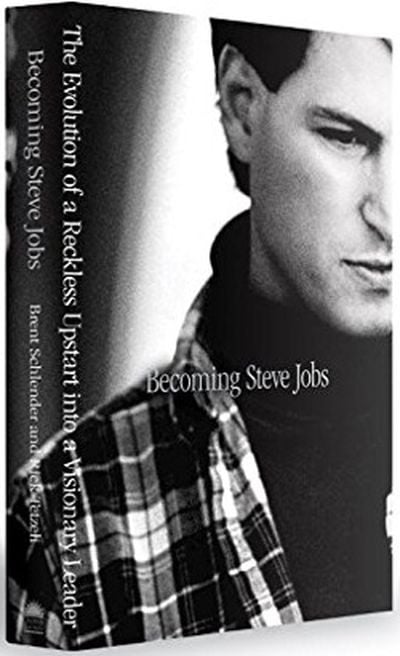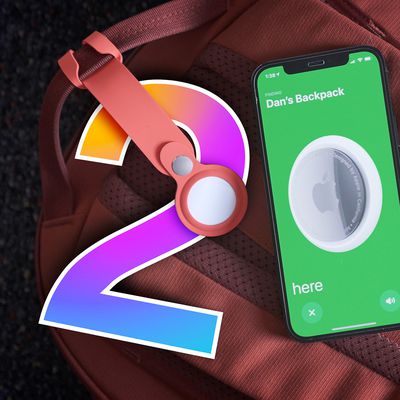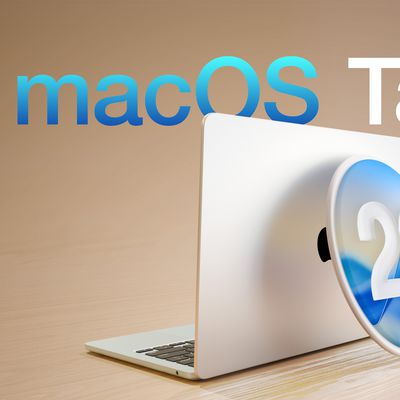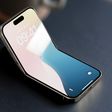 The upcoming book Becoming Steve Jobs, written by Brent Schlender, a reporter who interviewed Jobs several times throughout his life and became close to him, and Rick Tetzeli, executive editor at Fast Company, is set to be released on March 24. Ahead of time, the authors have shared a number of excerpts from the book that provide untold details about his life.
The upcoming book Becoming Steve Jobs, written by Brent Schlender, a reporter who interviewed Jobs several times throughout his life and became close to him, and Rick Tetzeli, executive editor at Fast Company, is set to be released on March 24. Ahead of time, the authors have shared a number of excerpts from the book that provide untold details about his life.
Apple CEO Tim Cook claims that Walter Isaacson's autobiography of Steve Jobs "did him a tremendous disservice," depicting the late Apple co-founder as "a greedy, selfish egomaniac." Cook added that Jobs certainly "wasn't a saint," but that "it's emphatically untrue that he wasn't a great human being." He believes that Jobs truly cared about things, but his passion was sometimes mistaken for arrogance.
"Steve cared," Cook continues. "He cared deeply about things. Yes, he was very passionate about things, and he wanted things to be perfect. And that was what was great about him. A lot of people mistook that passion for arrogance. He wasn’t a saint. I’m not saying that. None of us are. But it’s emphatically untrue that he wasn’t a great human being, and that is totally not understood."
Even as his sickness progressed, Jobs continued working at Apple until his final days, and wanted others to treat him as if he were not sick. Cook claims that Jobs began thinking about a succession plan and life after Apple in 2004, and spent time working with Joel Podolny, a professor he hired from the Yale School of Management, on Apple University to pass on his methodologies to Apple’s next generation of leaders.
"But as the days went on he would spend more time with me and with other people explaining why he thought or did something, or why he looked at something in a certain way. This was why he came up with Apple U., so we could train and educate the next generation of leaders by teaching them all we had been through, and how we had made the terrible decisions we made and also how we made the really good ones."
The book also details that Jobs worked closely with Norman Foster Architects on the design of Apple's Campus 2 in Cupertino, California, a spaceship-like headquarters under construction on the grounds of Hewlett-Packard's old campus. Jobs approached the design of the headquarters with the same principles he applied to the iPhone, iPad and everything else.
"Steve wanted people to love Apple," says Cook, "not just work for Apple, but really love Apple, and really understand at a very deep level what Apple was about, about the values of the company. He didn’t write them on the walls and make posters out of them anymore, but he wanted people to understand them. He wanted people to work for a greater cause."
Cook reflected on August 11, 2011, the day that Jobs called him to his house and decided that he should be the next CEO at Apple. Cook, who had previously served at the helm of Apple during Steve's medical leaves in 2004 and 2009, was hesitant about taking the position at first, but believed that the best candidate had to come from within Apple to truly understand the culture of the company.
"If you believe that it’s important to understand Apple’s culture deeply, you wind up clicking to an internal candidate," explains Cook. "If I were leaving this afternoon I’d recommend an inside candidate, because I don’t think there’s any way somebody could come in and understand the complexity of what we do and really get the culture in that deep way. And I think Steve knew that it also needed to be somebody that believed in the Beatles concept. [Jobs believed that the Fab Four brought out the best in one another—and moderated any individual’s excesses.] Apple would not be served well to have a CEO who wanted to or felt like they needed to replace him precisely. I don’t think there is such a person, but you could envision people trying. He knew that I would never be so dumb as to do that, or even feel that I needed to do that."
Jobs passed away in October 2011 following a lengthy battle with a rare form of pancreatic cancer. The excerpts above were adapted from Becoming Steve Jobs: The Evolution of a Reckless Upstart Into a Revolutionary Leader, which will be available in hardcover on Amazon for $18 on March 24. Apple executive Eddy Cue described the book as "well done" and the "first to get it right" earlier this week.
























